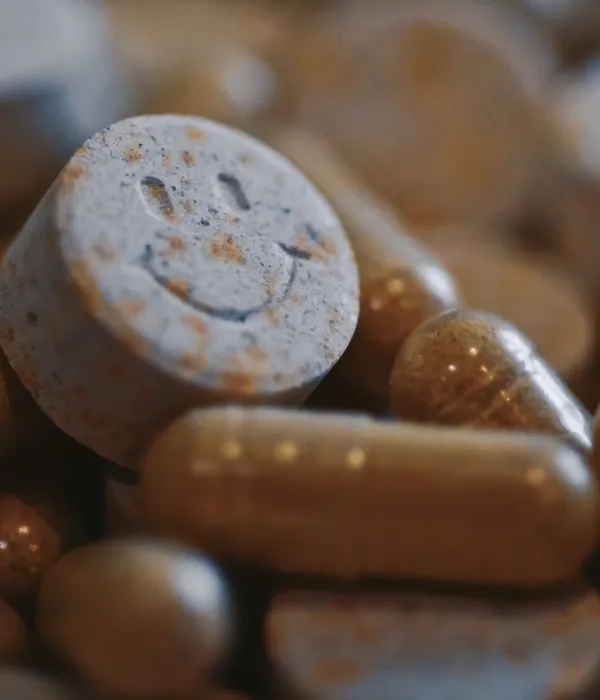Xanax Addiction Treatment Los Angeles
Understanding the Dangers of Xanax Dependence
Xanax is often prescribed to ease anxiety, but its potential for addiction is serious. Misuse can lead to strong psychological and physical dependence, with withdrawal symptoms that may be life-threatening without proper care. Lost Angels offers Xanax addiction treatment in Los Angeles, providing safe, effective solutions tailored to the needs of each person.

How Xanax Affects the Brain and Body
Xanax works by calming your brain through its impact on the central nervous system. While this can provide fast relief for anxiety or panic disorders, long-term Xanax use can cause the brain to rely on the drug to function normally. Over time, people may take larger doses to feel “okay,” leading to a dangerous cycle of addiction.
Xanax addiction involves both mental and physical challenges, and treating Xanax dependency requires a personalized treatment approach. Recovery from Xanax addiction is possible with the right support and a structured treatment plan that tackles the underlying causes of addiction.
Drug rehab centers often integrate multiple approaches to ensure every layer of the addiction is addressed. This includes therapy for emotional healing and tools for building a healthier routine post-recovery.
Xanax Addiction Treatment in Los Angeles
Los Angeles offers a wide range of addiction treatment options designed to support individuals at every stage of their recovery. A comprehensive program may include multiple treatment modalities to address both the physical and psychological aspects of addiction.
Detox is often the first and most urgent step. A professional detox program in Los Angeles helps manage Xanax withdrawal symptoms safely through medical oversight. Xanax detox may involve tapering doses and using supportive medications to ease the detox process.
Residential treatment offers immersive, 24/7 care in a structured setting. This type of inpatient treatment is especially helpful for people with severe addiction or co-occurring disorders. Living onsite at a rehab center provides continuous access to therapy, peer support, and medical supervision.
Outpatient treatment programs offer more flexibility. Outpatient drug treatment allows people to attend therapy sessions during the day and return home at night. A partial hospitalization program or day treatment may also be an option for those who need more structured care than traditional outpatient treatment.
MAT combines medications like antidepressants with therapy to reduce cravings and manage Xanax withdrawal symptoms. These medications are especially useful in managing the physical dependency associated with Xanax use. By stabilizing mood and reducing anxiety, MAT can make the early phases of recovery more manageable.
Therapies Used in Xanax Addiction Treatment
Xanax addiction treatment includes therapy designed to support long-term recovery and address the psychological aspects of addiction. Therapies help individuals build insight, resilience, and coping skills to avoid relapse. They also provide a safe space to process emotions and heal from trauma or stress that may have contributed to substance use.
Cognitive Behavioral Therapy (CBT)
CBT helps clients challenge and reframe harmful thoughts while learning healthier behaviors. It’s a cornerstone of most substance abuse treatment programs. This therapy is especially effective in breaking the cycle of anxiety and substance use, giving individuals tools to stay grounded. Many people find it empowering because it’s focused on practical, everyday change.


Motivational Interviewing
This strategy focuses on building motivation for recovery. It’s particularly effective in helping people struggling with ambivalence toward change. The approach is non-confrontational and respectful, encouraging people to explore their reasons for wanting to recover. Over time, it helps strengthen commitment to the treatment process.
Group Therapy and Peer Support
Participating in group therapy helps individuals feel less alone. It creates accountability and fosters emotional growth through shared experiences. Hearing others’ stories can offer new perspectives and encourage hope. Group therapy also builds a sense of community, which is essential for sustained sobriety.


Family Counseling and Education
Addiction doesn’t happen in isolation. Family involvement is also important. Therapy helps heal strained relationships and educates loved ones on supporting recovery from Xanax. It also addresses enabling behaviors and helps set healthy boundaries. Many families report improved communication and greater emotional understanding after counseling.
Dual Diagnosis and Mental Health Treatment
Addiction and mental health conditions are often interconnected. Treating both ensures better outcomes. In Los Angeles, many rehab centers specialize in dual diagnosis treatment to address co-occurring conditions alongside substance use. Treating both conditions helps reduce relapse risk.
A full evaluation identifies any co-occurring disorders like depression or PTSD that may contribute to Xanax abuse. Accurate diagnosis is key to choosing the right medications and therapies. It also helps guarantee that treatment addresses the whole person and not just the addiction.
Doctors manage medications like mood stabilizers and antidepressants to support mental wellness throughout recovery. This oversight prevents complications and helps stabilize symptoms that might otherwise trigger substance use. Medication plans are regularly reviewed and adjusted as needed.
Therapies are combined to treat the full person, addressing both the addiction and the mental health conditions that often go hand in hand. Weaving together multiple therapeutic methods allows clients to gain a more holistic and effective treatment experience. This integrated approach also improves engagement and long-term outcomes.
Regular evaluations ensure the treatment plan adapts to a person’s needs. This individualized treatment leads to better long-term outcomes. Monitoring allows clinicians to catch setbacks early and pivot when necessary. It also helps maintain momentum and build confidence as progress is made.
Rebuilding Daily Life After Xanax Addiction
A good rehab program includes support for everyday life skills. Los Angeles rehab centers offer resources to help clients succeed after formal treatment. These may include job training, educational support, or sober living arrangements. Rebuilding also involves restoring relationships and reconnecting with passions and goals. These elements provide purpose and help prevent relapse over time.
You may also participate in wellness-based recovery programs, including yoga, exercise, or art therapy, which help create a sustainable, substance-free lifestyle. Many programs encourage creativity, movement, and mindfulness to boost self-esteem and emotional regulation. These habits promote resilience even after treatment ends.

Choosing the Right Rehab in Los Angeles
Choosing the right treatment center involves looking for qualified professionals, strong aftercare options, and a track record of success. Reputable centers will take the time to understand your history, answer questions, and walk you through your options. The right fit can make a significant difference in your recovery journey.
Accreditation and Licensed Professionals
Always look for accredited treatment centers with licensed doctors, therapists, and addiction specialists experienced in drug and alcohol treatment. Accreditation ensures adherence to high standards of care. It also provides peace of mind that you’re receiving treatment from qualified and ethical providers.
Personalized Plans Based on Assessment
A high-quality treatment facility will design personalized treatment plans that reflect your unique background, needs, and goals. An individualized treatment approach ensures better results.
This may include tailoring therapy modalities, scheduling, and aftercare plans to align with your lifestyle and preferences. Personalization increases motivation and accountability.
Aftercare and Relapse Prevention
Addiction recovery continues after rehab. Rehab in Los Angeles often includes aftercare services like support groups, counseling, and alumni events. Aftercare provides the structure and connection people need as they transition back into daily life. It’s an essential part of staying on track and preventing relapse.
Staying on the Path to Recovery
Long-term recovery from Xanax requires continued effort and support. With the right resources, clients can remain free from Xanax addiction and rebuild their lives. Supportive relationships, healthy habits, and a strong sense of purpose all contribute to lasting success. Staying connected to treatment resources helps people navigate life’s ups and downs.
Ongoing therapy helps manage cravings, triggers, and emotional ups and downs that may appear post-treatment. Weekly check-ins allow therapists to monitor progress and provide guidance as challenges arise. These sessions also reinforce coping tools learned during rehab.
Peer-led recovery groups and 12-step programs help people stay accountable and connected to others with shared experiences. These groups offer a space to talk openly without judgment. Over time, they become a vital source of encouragement, friendship, and hope.
Lifestyle changes like proper nutrition, fitness routines, and mindfulness practices support lasting recovery and reduce the risk of relapse. Coaching helps clients set and reach goals that support their physical, emotional, and spiritual well-being. It also boosts self-confidence during the recovery process.

Lost Angel's Xanax Addiction Treatment Program
At Lost Angels, we understand how overwhelming Xanax addiction can feel, especially when it starts from a place of simply trying to feel better. What begins as a way to manage anxiety or stress can slowly become something that takes control of your life.
If you’re caught in that cycle, we are here to help. Our Xanax addiction treatment program offers a safe, compassionate space to begin again. With a team of licensed clinicians, trauma-informed therapists, and medical professionals, we build a treatment plan around you.
Reach out to Lost Angels today. The life you want is possible, and it starts here.
Related Treatments
Frequently Asked Questions
What are the most effective therapies for treating Xanax addiction in Los Angeles?
CBT is a real staple in treatment. It helps you spot your triggers and find new ways to manage anxiety, without reaching for meds. Dialectical Behavior Therapy (DBT) is another great option, especially if you struggle with big emotions. You’ll learn mindfulness and how to ride out tough moments without slipping back into old habits.
Are there specialized rehabilitation centers for Xanax dependency in the Los Angeles area?
Absolutely. There are centers in L.A. that focus specifically on Xanax and benzodiazepine addiction. These places really understand the ups and downs of withdrawal and recovery. Residential rehab programs give you 24/7 support, a break from daily stress, and a safe place to heal.
How long does a typical Xanax addiction treatment program last in Los Angeles?
Detox is usually the first step, lasting about 7-14 days depending on your history and dosage. Residential programs tend to run from 30 to 90 days, but it depends on your needs and any mental health concerns. Outpatient treatment can go for 3-6 months.
What is the success rate of Xanax addiction treatment in Los Angeles?
Success rates are honestly all over the map, since everyone’s story is unique. What we do know: folks who stick with medically supervised detox and a full therapy program tend to do better than those who just try to tough it out alone.
How does medical detox factor into the treatment process for Xanax addiction?
Can health insurance cover the costs of Xanax addiction treatment in Los Angeles?
Most major insurance plans do cover substance abuse treatment services. The Mental Health Parity Act says insurance companies have to treat mental health and substance use concerns just as seriously as any other health issue.







